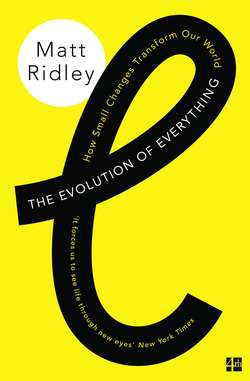Читать книгу The Evolution of Everything: How Small Changes Transform Our World - Matt Ridley, Matt Ridley - Страница 8
Newton’s nudge
ОглавлениеIn his passionate attachment to rationalism, materialism, naturalism, humanism and liberty, Lucretius deserves a special place in the history of Western thought, even above the beauty of his poetry. The Renaissance, the scientific revolution, the Enlightenment and the American Revolution were all inspired by people who had to some degree imbibed Lucretius. Botticelli’s Venus effectively depicts the opening scene of Lucretius’s poem. Giordano Bruno went to the stake, with his mouth pinned shut to silence his heresies, for quoting Lucretius on the recombination of atoms and the awe with which we should embrace the idea that human beings are not the purpose of the universe. Galileo’s Lucretian atomism, as well as his Copernican heliocentrism, was used against him at his trial. Indeed, the historian of science Catherine Wilson has argued that the whole of seventeenth-century empiricism, started by Pierre Gassendi in opposition to Descartes, and taken up by the most influential thinkers of the age, including Thomas Hobbes, Robert Boyle, John Locke, Gottfried Leibniz and Bishop Berkeley, was fuelled to a remarkable extent by the sudden popularity of Lucretius.
As Lucretian ideas percolated, the physicists were the first to see where they led. Isaac Newton became acquainted with Epicurean atomism as a student at Cambridge, when he read a book by Walter Charleton expounding Gassendi’s interpretation of Lucretius. Later he acquired a Latin edition of De Rerum Natura itself, which survives from his library and shows signs of heavy use. He echoed Lucretian ideas about voids between atoms throughout his books, especially the Opticks.
Newton was by no means the first modern thinker to banish a skyhook, but he was one of the best. He explained the orbits of the planets and the falling of apples by gravity, not God. In doing so, he did away with the need for perpetual divine interference and supervision by an overworked creator. Gravity kept the earth orbiting the sun without having to be told. Jehovah might have kicked the ball, but it rolled down the hill of its own accord.
Yet Newton’s disenthralment was distinctly limited. He was furious with anybody who read into this that God might not be in ultimate charge, let alone not exist. He asserted firmly that: ‘This most elegant system of the sun, planets, and comets could not have arisen without the design and dominion of an intelligent and powerful being.’ His reasoning was that, according to his calculations, the solar system would eventually spin off into chaos. Since it apparently did not, God must be intervening periodically to nudge the planets back into their orbits. Jehovah has a job after all, just a part-time one.
